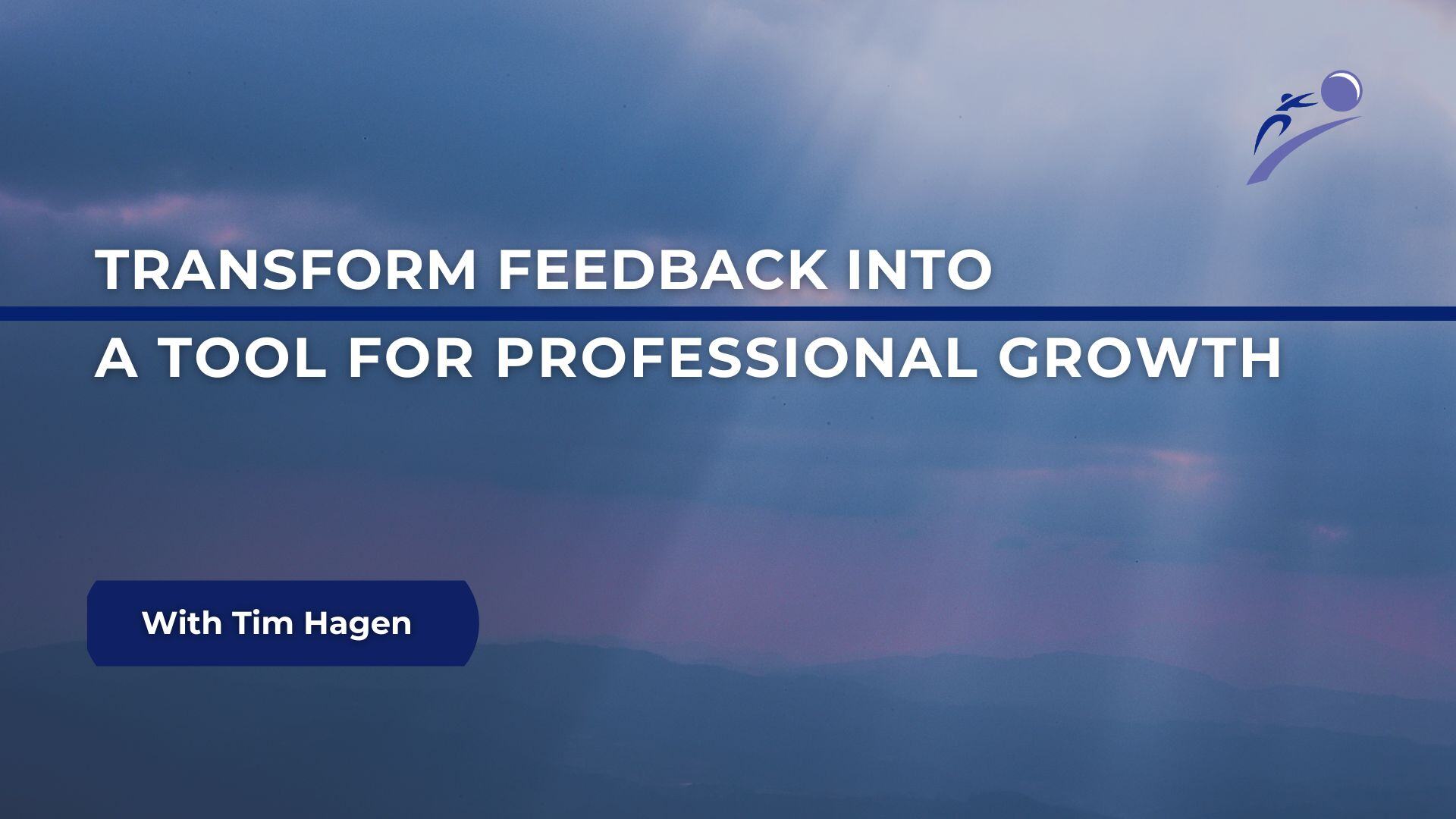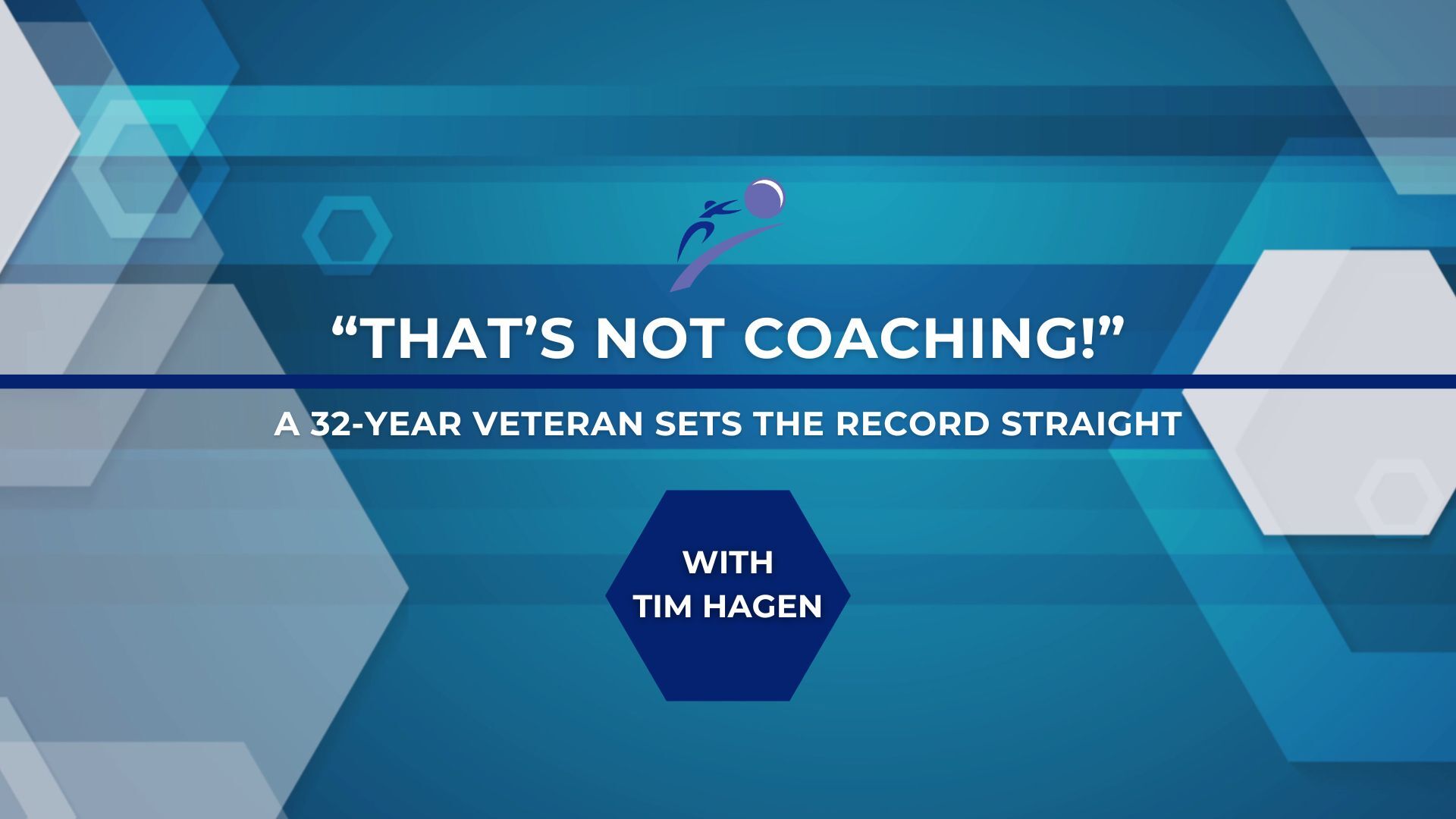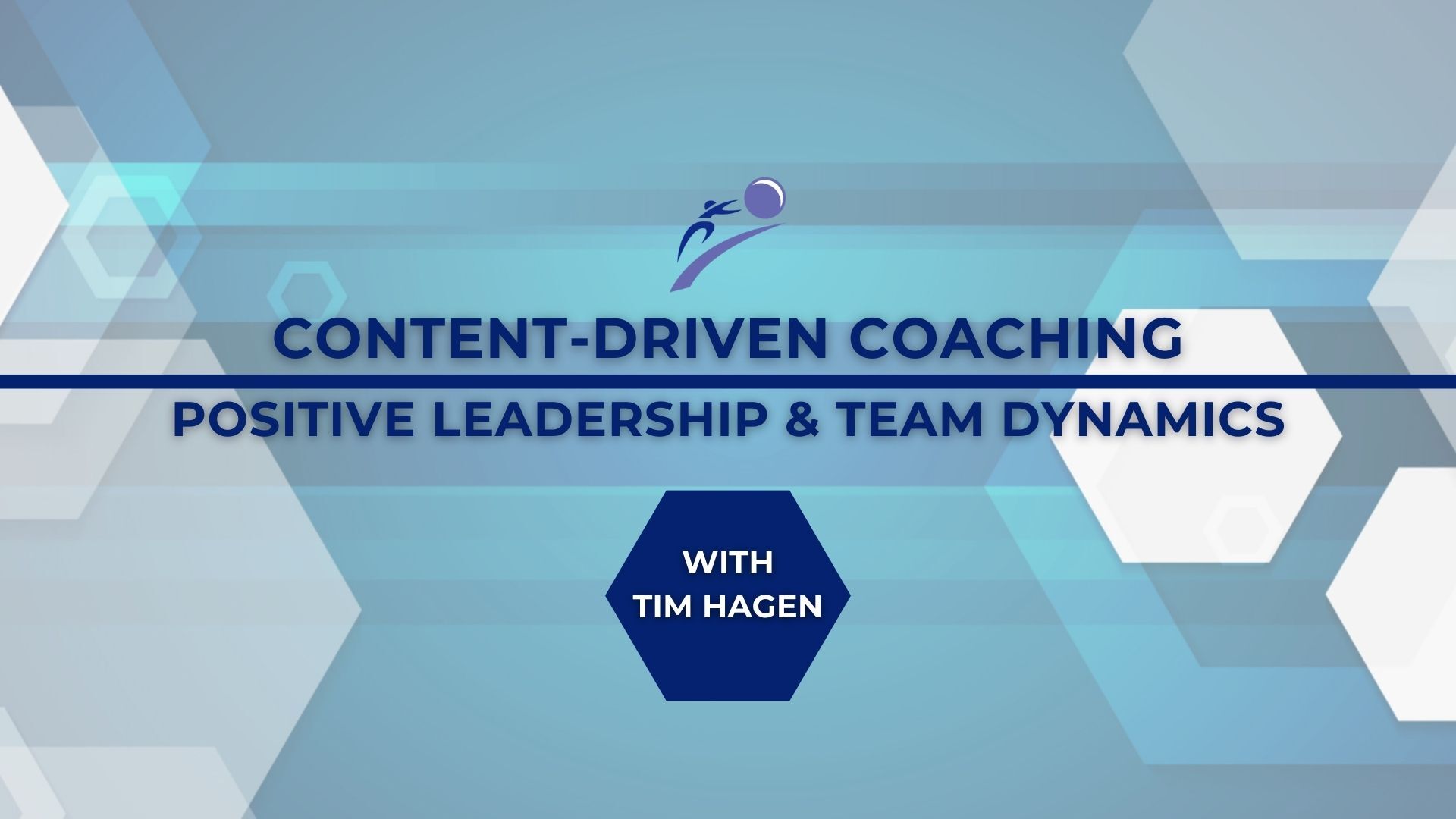Transform Feedback into a Tool for Professional Growth
One of the greatest lessons I learned, which was over 40 years ago at IBM, is the value of being in control of feedback.
Now, let's take a step back and hear the word feedback. You hear the word. Where does your mind go?
Does it go to strength-based or does it go to constructive? Uh-oh, this won't be good. I've got to hear this.
I ask this question all the time. When a boss calls you into the office, what's usually the employee's first response?
In over 30 years, I've never, ever had someone respond to that positively. It's always uh-oh, what did I do?
Forty years ago, I had a great boss who was a great coach and said to me, "If you don't like receiving feedback, go get it before they have to give it to you." I'll never forget that. She also said, "Tim, if you go ask for feedback early, you'll learn from it. It won't build up in your mind as this horrible thing to deal with. If you get it early, guess what happens? You don't ever feel like you're getting constructive feedback." I'll never forget.
That's what I mean when I say you're in control of feedback.
We tend to wait. We tend to wait for someone to give their feedback to us, and then we have this thing hanging on to it called an emotional interpretation. I don't like what I hear, so I'm going to push back. I'm going to come up with a narrative or a story about why the feedback is not true, or I'm going to ask for an example so I can rebuttal it away. We are in control of feedback.
I often share this with people, and most don't like to hear this. But it's as true today as it was 30 years ago.
Leaders don't want to give you feedback if you're resistant. How often did our parents give us feedback and we just rolled our eyes and said, "Oh, stop bugging me?" Or at least thought that. How often do our kids say that to us? They don't want to hear it. They discount it, they push back because they're emotionally interpreting. They're emotionally reacting. When we're emotional, we typically lose logic and don't use rational thought processes. Same thing in the workplace.
As an employee, I think it's one of the greatest differentiating factors you can possess and that is the opportunity to make it easy for someone to give you feedback. It doesn't mean you're always going to agree with it. Go get feedback before they have to give it to you.
How does your team respond to feedback? Do they struggle with it, feel resistant to it, or really listen and thank you for your thoughts? Take this quick quiz and see where they land on our Effective Feedback scale.





